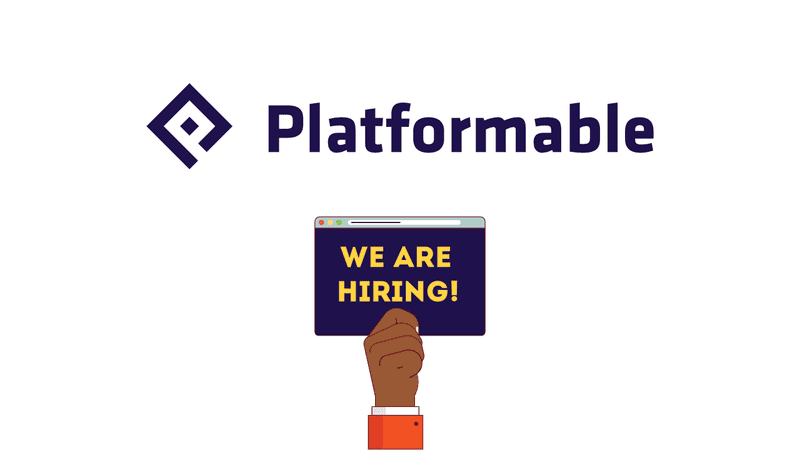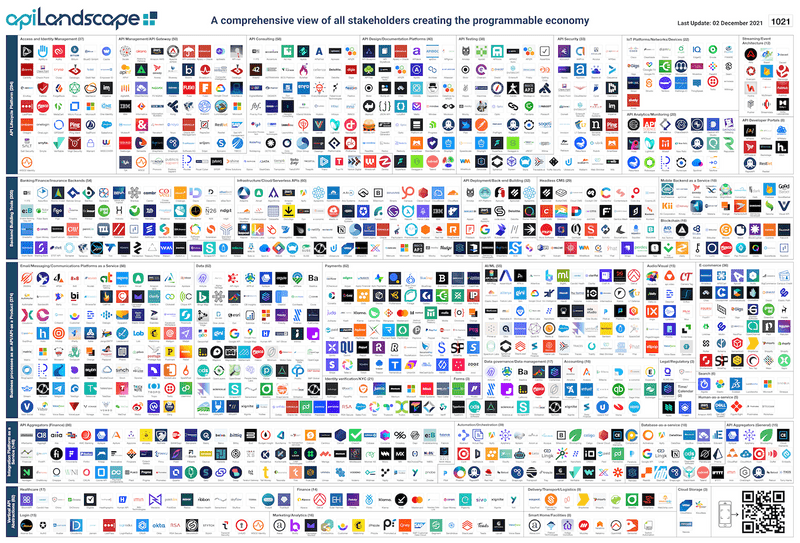How APIs Will Invent the Blue Collar Space Opera Future
18 min read
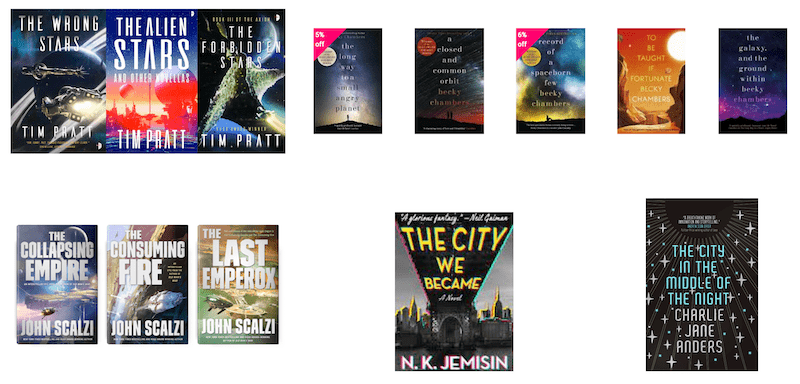
At Platformable, we measure the value that APIs are generating for open ecosystems, in which all stakeholders can participate and co-create. We’ve helped build API strategies for the European Commission, we’ve supported the World Bank to encourage open APIs for financial inclusion, and we helped prepare some research on open health ecosystems for the World Health Organization (WHO).
Last year, as the COVID pandemic made us rethink our digital infrastructures, i think many of us realised how few existing enterprises or industry sectors were API-ready.

To this day, APIs aren’t used nearly enough to share health data in a secure and trustworthy way between different systems. In our recent WHO study and other health policy work, a lot of the data sharing, including for genome sequencing which enables rapid detection of COVID variants, that data isn’t being enabled via APIs as yet. In Europe, the European Centre for Disease Prevention and Control doesn’t make use of APIs to draw in country data or make it available: 18 months into the pandemic and they are still offering once-a-day bulk downloads of the latest data.
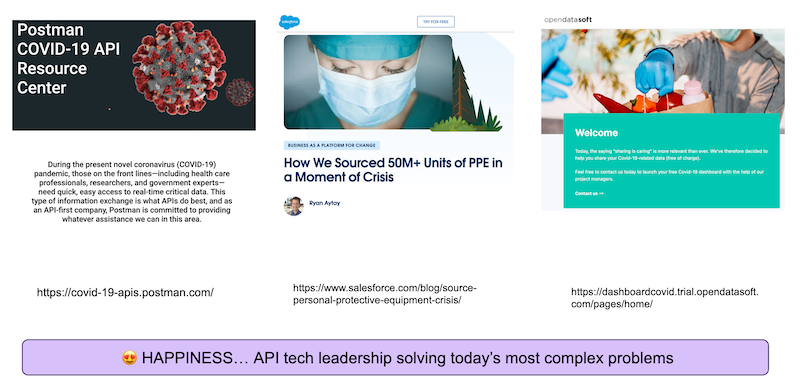
It is amazing to see some API tech companies jump in and think about what they can offer for handling global crises. Postman, for example, has made sure an open catalogue of COVID-response APIs were accessible and collected together so that API developers can quickly contribute to building solutions. There are other examples of API tech leadership like the API-focused CRM Salesforce, which was instrumental in allocating resources to move PPE supplies around in the early days of the pandemic in the US. And Opendatasoft offered their API-enabled data platform for free to cities and agencies building COVID dashboards. There are countless other stories in the API sector.
The pandemic made me think about us as a society, where have we come from, and where are we headed, and I guess also because I had a lot of time at home to contemplate all of this, during lockdown I immersed myself in science fiction reading.
Introducing the blue collar space opera
A ‘space opera’ is a sub-genre of science fiction in which a ragtag group of adventurers stumble across some sort of giant threat and have to work together on how to solve it. And in the last few years, a sub-subgenre has emerged, or disrupted the space opera, now often called the ‘blue collar space opera’. You see, when the space opera genre started it tended to be a Flash Gordon or even Captain Kirk type: some rich, white asshole who has the resources and an expensive ship and is allowed to go creep on alien species around the galaxy.
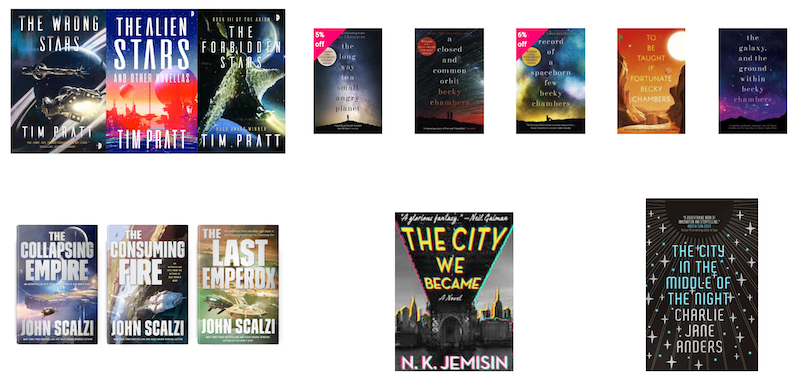
But in recent years, writers like Charlie Jane Anders, Becky Chambers, Tim Pratt, John Scalzi, and NK Jemisin have all flipped the genre so its much more about displaced, disenfranchised, independent workers or contractors all traveling the galaxy and stumbling into a huge cosmos-ending threat that no one believes them about and they need to solve by stringing together whatever tech and wits they have about them.
And that reminds me of APIs: over the past ten years, APIs have been hugely disruptive for industry monoliths, and have allowed entry by new startups. APIs enable co-creation amongst stakeholders, allow people to generate the value they want, APIs can encourage autonomy and participation: you are not stuck with accepting an end product that is what the manufacturer wants to give you, you can take the parts and solve for what you need.
And there is another story related to the blue collar space opera that reminds me of APIs: in 2019, Jeannette Ng won the prestigious John W Campbell Award for best new science fiction writer: an award that comes from one of the early creators of the genre and is usually given to a writer who in some ways uses the space opera genre in their work. When Ng accepted the award, she spoke of Campbell’s fascist and racist past, which in turn led to the renaming of the honor as the Astounding Award. Even this story reminds me of APIs: as Jeff Lawson spoke about at the start of the apidays Interface conference, developers and API leaders have a lot of power, if you look at the success of a lot of the global tech companies today, in any sector, if you look at which businesses weathered the impacts of the pandemic the best last year: they all depended on their API infrastructure. It is the API developers that are building and creating the successful businesses of the world, and developers themselves have the opportunity to disrupt and change the script just as Ng did when she bravely accepted the award and set the science fiction community on a different path that acknowledged its often-misogynist and racist past.
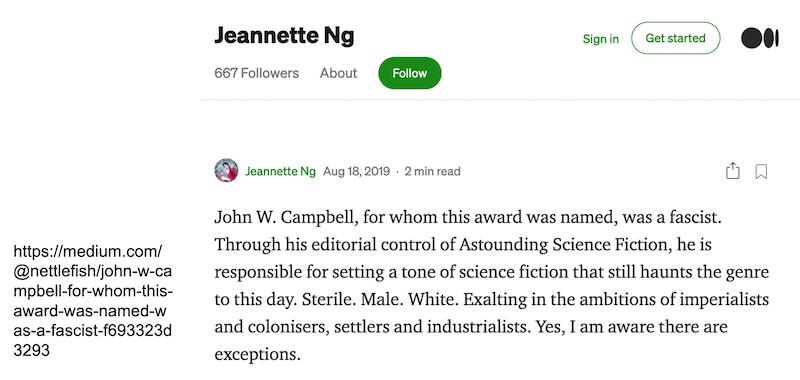
When I read blue collar space operas today, underneath the main story line, I see the APIs all the way down. Let's look at a few of the concepts in recent novels. I highly recommend all of these titles for your summer reading, and lets see, will APIs get us to these imagined futures?
Concept number one: Instant payments
In Tim Pratt’s Axiom series and in Becky Chamber’s Wayfarers series, people often pay for things by moving money from their wrist band to someone else’s wristband, and the credits are automatically exchanged.
Are we there yet?
Not really. Not globally at least.
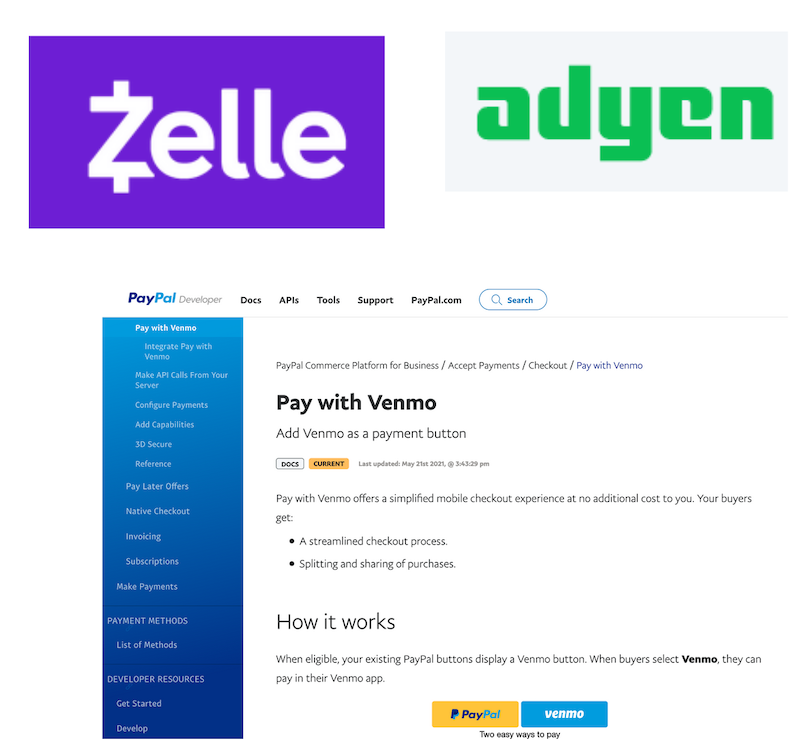
Venmo offers their API through the Paypal developer portal. Zelle offers an API in the US for businesses. QR code peer-to-peer payments functionality is provided by the Central Bank of Brazil through Pix, and APIs are available so that payments providers can integrate Pix into their capabilities. Some payments providers, like Adyen have integrations that build on instant payments systems, but many of those are credit card transaction processes. For businesses, there is still a wait to access the funds, for peer to peer it is more instant, but within country. In Spain i can send instant payments to other people in Spain, i can’t send money instantly to someone in France. In Spain, the Venmo/Zelle type service is called Bizum, but if you look at their integrations: you first need to find the e-commerce platform you want to integrate wit, and then the documentation is locked behind a zip PDF file that you need to register to see.
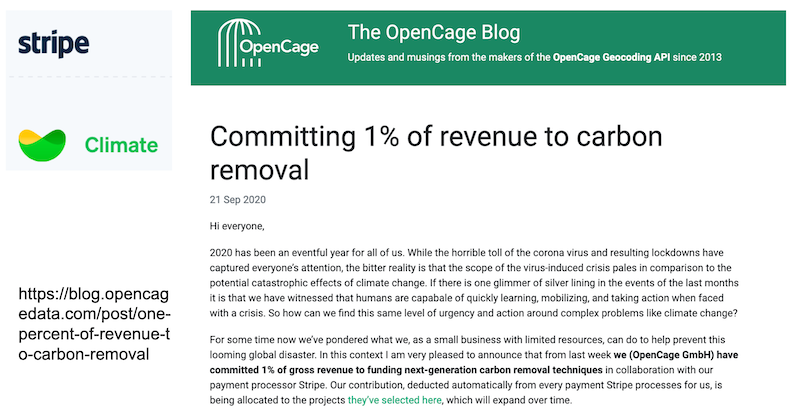
You can use Stripe: they have been supporting small businesses and providing developer firnely documentation that makes it easy for businesses of all sizes to integrate their APIs. They also launched their Climate service which enables merchants and Stripe customers to allocate a percentage of their transactions to renewable energy savings, like geocoding specialists OpenCage do. But Stripe’s instant payouts is at least the next business day, while other payment services offer an API for instant payments notification: in other words, they inform you instantly when you have received a payment, not that the money is in your account.
At Platformable, we track fintech that build with open banking and open finance APIs. By mid-2021, of the 1201 fintech using APIs that we are tracking, 451 are payments products.
There are a lot of moving parts to still fix for instant payments: there are anti-money laundering considerations that need to be solved, and fraud assessment: there are no regular public reporting systems for example, that monitor open banking-related fraud risks or incidents.
The number of API calls made through open banking systems globally (or in any one country) aren’t reported on a regular basis, so there is a lot we can’t see about how these APIs are enabling participation. Using today’s APIs, we don’t know if our ragtag group of adventurers could actually just instantly pay to dock their spaceship so they can beat the aliens that are trying to destroy any civilization that reaches faster than light travel, because yes, that is one of the tropes of the genre.
Concept number two: Government operations
In a blue collar space opera, the governments are massively complex, planet-spanning unions that ignore the little person. I love in Becky Chambers’ series that shows how the official galactic government even drags their feet on helping a displaced species whose home planet was destroyed by another alien species that is now part of the union. It is too politically sensitive to help them resettle and enough time has passed without a solution that the government can just say that the species prefers to live nomadically.
In these novels, these governments are turning up when needed to deliver their services or trigger oversight instantly, digitally, accessibly (usually when our ragtag team docks at a space port or hub, for example, or when they have some cargo they are trying to transport surreptitiously which is of course when the governments suddenly do a spot-inspection).
Are we there yet?
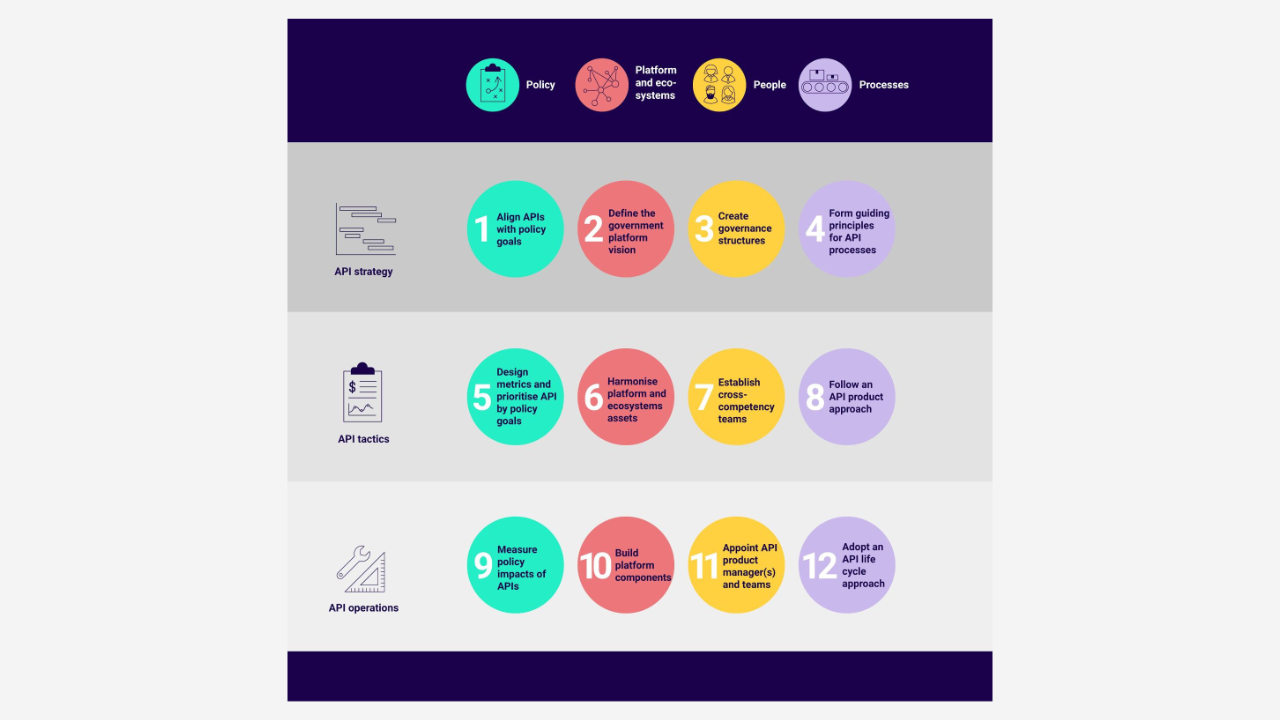
Two years ago, i was part of a team that wrote the API Framework for Digital Governments for the European Commission. The team produced some great research on the state of government APIs and their potential, and we came up with an approach that ensured that APIs are policy-driven and focused on:
- Enabling citizen service delivery
- Making use of data as an asset
- Optimising use of resources, and
- Contributing to increasing participation and reducing inequalities.
Since then, there has been some progress: France, Netherlands, and areas like the Lombardia region in northern Italy are all stand-out examples of government API infrastructures. UK, US, and Australia are also world leaders in implementing government APIs that enable joined up service delivery. Finland are implementing the API Framework across their operations aimed at fostering innovation ecosystems.
But it is really only Singapore to date that is thinking about how to use APIs to totally turn our notions of government services on their head. In Singapore, they are looking at a citizen life journey that they call a “moments of life” process that looks at where APIs could intervene to make life less bureaucratic. For example, around the world, usually if you have a baby, then the hospital records the birth, but you have to go and apply for new family assistance, or arrange vaccines and early childhood support services. When that baby grows into an adult and starts a business, they have to lodge taxes and so on. Singapore’s moments of life approach looks at using APIs so that the government comes to you. When a birth is registered, an API triggers the family allowance, the vaccines, the early childhood services. And when starting a business, the startup could automatically be registered for the right tax systems and supported to maintain their account keeping automatically, as services like Xero and QuickBooks are now able to do in some parts of the world by integrating your account keeping, your bank account and your tax submissions so that you never have to worry about not getting a rebate you are owed, or of not filing the right information for your taxes.
So we are getting there, and there are some amazing examples that seek to leverage APIs to reach those who may not be traditional users of government services. In Australia, the tech and API community has been involved in Hack 4 Refugees events which seek to build solutions for newly arrived migrants that combine government and tech APIs to create new products and services, for example. (Platformable, along with other API-focused businesses like Webhelp signed a pledge at Mobile World Congress this year to work with MigraCode reach out to migrant, refugee, and LGBT communities as a priority in our future hiring practices, seeking to collectively hire 10,000 new employees from marginalised communities over the next ten years).
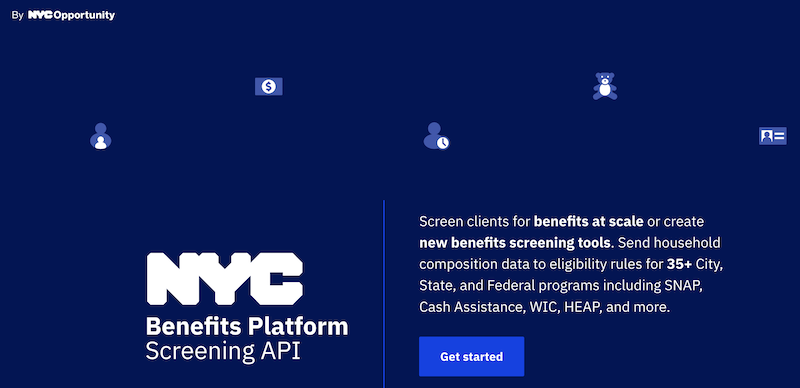
New York City has built a Benefits Platform Screening API that allows agencies to integrate a directory API so that it is easy for anyone to check what services clients are eligible for at the community, city, state and national levels. That joined up thinking is being done in a way that protects privacy. The API also doesn’t collect data on anyone who uses the directory to check which services they are eligible for, so undocumented residents, for example, can reach out without fear of being persecuted.
Concept number three: The city as an organism
In NK Jemisin’s latest book, ok, not set in space, but still a ragtag group of adventurers who are displaced by society and have to fight against a cosmic evil, and in Charlie Jane Anders’ books, there is often this idea of the city as a living breathing organism in itself.
Are we there yet?
In a lot of ways, APIs are making this a reality already. A lot of cities have sensors on waste management bins for example, so that waste collection can be optimised: the city itself knows when it needs to ablute.
A lot of cities use open311 to automatically register city complaints like graffiti or potholes so that city maintenance requests can be allocated and respond, and the citizen informed of the outcome. But automating a city like this, creating it as a living breathing organism can still introduce or widen inequalities.
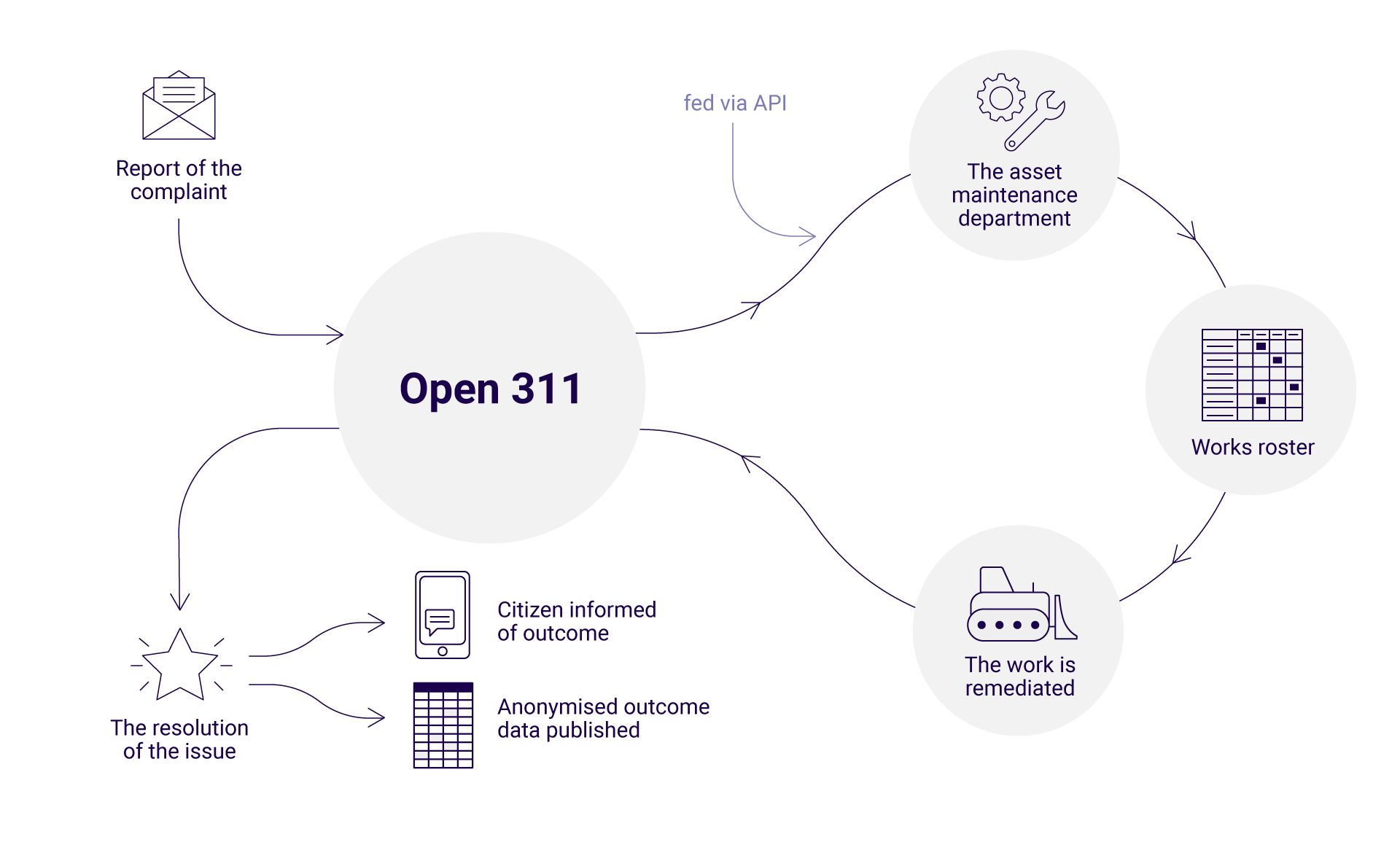
In open311, the whole system is triggered by a citizen making a request. And citizens in higher income neighourhoods may be more inclined to do so: they have regular work where they can make a call or send an email during the day instead of lower paid or hospitality jobs where people are on their feet all day and the last thing they feel like dealing with when they finish their shift is sending an email or making a call to the city offices. So if that happens, more asset maintenance calls are directed to high income neighborhoods so those neighborhoods keep getting improved and lower income neighborhoods aren’t supported as much, so here you can see the risk that APIs can play a part in widening and entrenching disadvantage. But APIs could also be part of the solution here. Instead of just being triggered by citizen complaints, city vehicles could include sensors so that when workers travel through all neighborhoods, as they pass over potholes, they automatically send an alert to the open311 system. We can think about how to create self-regulating cities that are balanced and support everyone.
This API-driven tech that skews towards higher advantaged citizens also happens in private business as well. Of course, businesses have to go after the paying customers, but the way tech is being set up often automatically locks out some sections of the population, or privileges those that have high levels of resources already.
Final concept: Underdogs for the win!
What I love about blue collar space operas is that it isn’t the dystopian battle royale, fight in tribes trope of a lot of recent science fiction. Sure the underdog may win in those scenarios, but they are often co-opted into the system, or they still fall into an overarching political system of power imbalances. In blue collar space operas, our ragtag group often defeats the alien overlords or corrupt intergalactic government themselves and they get to make up their own rules going forward. They either become the government and reshape the rules to work for everyone, or are given special rights to roam freely because humanity owes them an eternal debt. I can’t mention which books use these solutions to avoid spoilers, but it is pretty common.
Are we there yet?
I like to think APIs and API-run businesses are the disrupters. Our industry can level the playing field and allowed new market entrants to gain a foothold and grow. And whats more, it is the API developers themselves who have built that success. When you look at today’s biggest businesses, they have all been built because they have had teams of bright, dynamic API developers helping them win success. But are we taking a step back and asking what we are building here?
Many of us are familiar with the concept of Conway's Law, which states that the way a business is structured will determine the way the software is built. But we seem to forget this when we hold up the Bezos mandate which argued internally to Amazon that everything should be built with APIs. We regularly hear API industry leaders reference this set of 10 rules. But the tenth rule in that mandate is “or else you will be fired”, and that really speaks to the Conway's Law nature at Amazon.
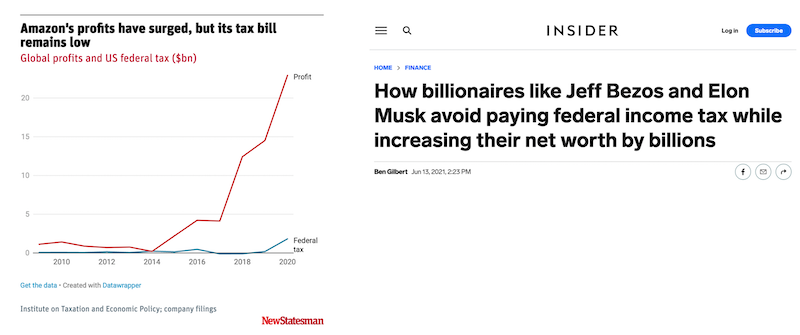
I’m concerned about the monopoly and power we as the API industry are feeding in to Amazon and I don't have an easy answer. I use services that are built on Amazon. And sure, they may have been the upstart, but now they are the bully. They don't pay fair taxes. They don’t treat Black and Brown workers in their warehouses fairly or provide a safe working space. If we look at what they did in retail, they offered all small businesses a platform, and then when they had a virtual monopoly they changed the pricing agreements and started selling directly competitive products, which they had learnt consumers wanted by studying the data from the sales volumes of those small retailers. Everyone who is building on AWS today can see that this is the future that is coming for you. I don't have a solution. My business tries to decentralise where it can: we use Strapi as a backend with Digital Ocean as the server, whereas other headless CMS would force me to build on AWS. I then use Netlify for the front end which is built on AWS: I have asked via support if they can offer options, but there aren’t many alternatives that I know of. Collectively, as an industry, I feel like we are throwing out the lessons of vendor lockin that we should have learnt, and are collectively shrugging and all going with Amazon and eventually this will destroy us when they do the same to us that they did with retailers, what they do with their warehouse workers, what they do to avoid paying their fair share of taxes.
And here’s the crazy thing: the API industry has a lot of power. Again, I go back to how Jeff Lawson opened the apidays Interface conference: Ask your developer: because developers know how to build success.
API leadership in a pandemic and climate crisis world
So here’s a small challenge to draw out the impact the API industry can have:
- Consider
- Involve
- Decentralise.
Consider the impacts of your tech and what you are building. Conduct impact assessments to see whether your tech has the potential to widen inequality or lock out some sectors of the community. All tech has the potential to solve or to create harms, know in which direction your solution is facing. Like our open311 example, any potential areas that widen inequality, APIs could also be part of the solution that rebalances those potential impacts, if designed thoughtfully.
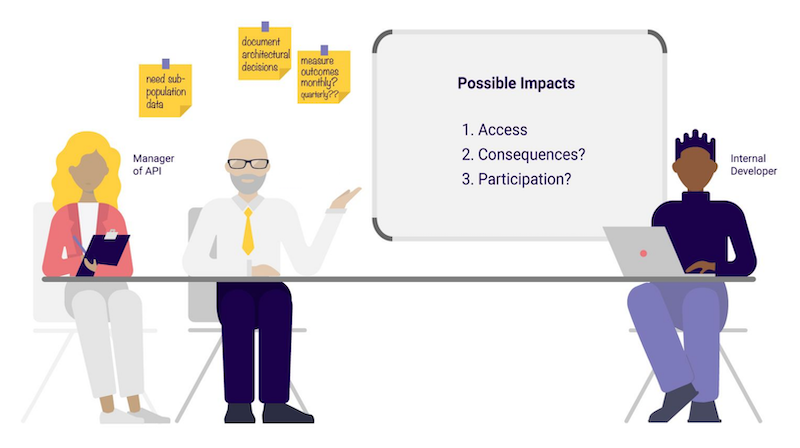
Involve all target segments. API providers like Algolia and Twilio have great programs that they have built up to ensure that their APIs can be used by startups and non-profits that would otherwise have difficulty accessing and participating in the digital economy. If you are a developer evangelist, consider trying to measure the businesses that are using your APIs: how many of those businesses are women-owned, migrant-owned, LGBT-owned? Crunchbase has started including data on diversity of management teams, unfortunately most other global company information APIs don’t record that data as yet, but it is an essential dataset if we are to measure whether open API ecosystems in banking, finance, insurance, energy, telcos, health and so on are enabling participation by everyone.
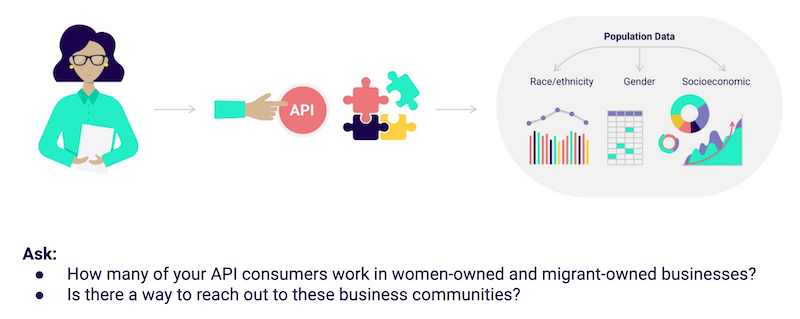
Decentralise tech architecture to avoid reliance on one vendor. API thought leader (and first to coin and popularise the term “developer experience”) Jeremiah Lee has an excellent Twitter thread on coming off the white supremacist-supporting Facebook, which is a good example of how to disentangle from larger platforms.
Unfortunately Youtube is pretty much a monopoly for video even though they create obstacles for Black and LGBT creators to monetize on their platform, yet make it easier for white racists to build audiences. Think about options other than AWS when considering your API server architecture. How dependent are you on one or two players and if they suddenly change their terms of service or pricing strategies, as they have done with other customer segments, how vulnerable does this make you? How much can we turn a blind eye to their staffing practices that don’t allow toilet breaks for delivery drivers? You can decentralise all the way down: every one of my blue collar space operas I bought online through bookshop.org. Yes, they did take longer to get to me: I know how much I am willing to compromise (or not) for overnight delivery. You don’t need to boycott necessarily, but recognise your power and make a few decisions to open up the playing field and diversify where your money goes and which businesses you support. Diversify and decentralise your tech stack.
Post COVID, let’s imagine a better world that doesn’t use APIs to replicate the entrenched power systems of old. Let’s imagine those exciting space opera scenarios, lets get out of bed each morning and ask, as API developers, as API leaders, what kind of future do I really want to build today?



